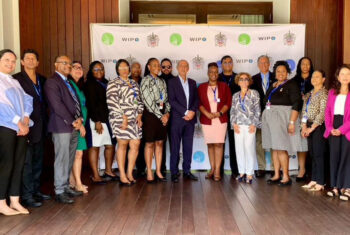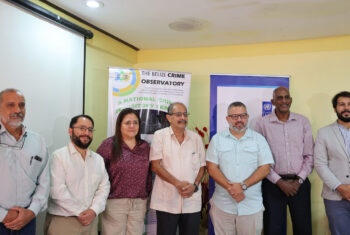Belmopan. May 17, 2019. A “Toolkit for the Green Climate Fund’s National Designated Authority in Belize” will be launched by the Ministry of Economic Development and Petroleum (MEDP) in late June 2019. The toolkit was designed to help organisations in Belize understand and access “climate finance”. The toolkit will also provide guidance to the Ministry in the undertaking of its roles and responsibilities as the country’s National Designated Authority (NDA) to the Green Climate Fund (GCF). The NDA will be supported by the Belize National Climate Change Committee (BNCCC).
Additionally, the toolkit will be used as a general awareness-raising tool that covers the GCF operational modalities amongst key national stakeholders. These include:
- Fundamental facts about the GCF and the types of support available;
- Readiness support available and procedure to become a Delivery Partner;
- Accreditation process and requirements to become a national Accredited Entity; and
- GCF project cycle and requirements to submit funding proposals, including the ‘no objection procedure’ established in Belize, and the support available for pipeline development and project preparation.
Two policy briefs and an infographic have also been developed on the same themes for wider dissemination among Belize’s stakeholders.
Through the Caribbean Community Climate Change Centre (CCCCC), the MEDP received a GCF readiness grant approved in December 2016. The grant was designed to enhance the existing capacity within the NDA, as well as develop a Country Programme for climate-related investments, thereby supporting appropriate oversight of the GCF activities in the country level.
In February 2019, the NDA received additional readiness support that seeks to address the remaining capacity and coordination issues for accessing international climate finance in the country.
Existing climate modeling projections for Belize show an increase in average atmospheric temperature, reduced average annual rainfall, increased sea surface temperatures, and the potential for an increase in the intensity of tropical storms. As indicated in the draft GCF Country Programme of Belize (May 2019), while the country has contributed less to global greenhouse gas emissions, it is expected to suffer from adverse impacts on its key socio-economic sectors including agriculture a water resources, coastal and marine resources, fisheries and aquaculture, forestry, biodiversity, tourism, human health, energy and transport infrastructure, as well as land use and human settlements. The five-year Country Programme includes a pipeline of 28 projects addressing key climate risks and capacity gaps in Belize, that will be submitted to the GCF for funding.
Ends.


